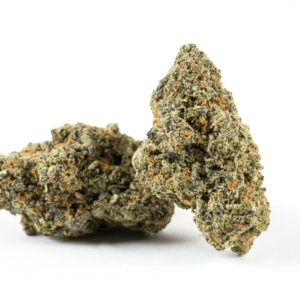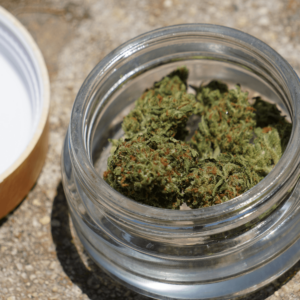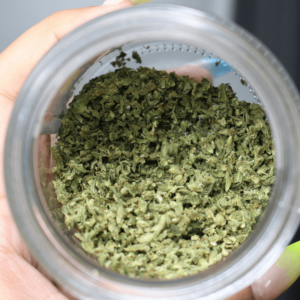In the ever-evolving world of cannabis, cannabinoids like THC and CBD have long dominated the spotlight. However, the growing interest in minor cannabinoids is reshaping the conversation about how cannabis can support health and wellness. Two such compounds—CBN vs CBG—are gaining attention for their distinct properties and promising therapeutic potential.
CBN and CBG are non-intoxicating cannabinoids that interact with the body in unique ways, offering a variety of health benefits without the “high” associated with THC. Whether you’re looking for better sleep, pain relief, or support for inflammation, these cannabinoids might hold the key.
This guide explores the differences, benefits, and uses of CBN and CBG, helping you decide which one might be right for your needs.

What Are Cannabinoids? A Quick Refresher
Cannabinoids are natural compounds found in cannabis plants and the hemp plant. There are over 100 known cannabinoids, each with its own set of effects on the body. These compounds work by interacting with the endocannabinoid system (ECS), a regulatory network that helps maintain balance in functions like mood, sleep, pain, and immune response.
While THC and CBD are the most famous cannabinoids, many others, such as CBN and CBG, have unique properties that are only beginning to be understood.
Introduction to CBN
What is CBN?
CBN is a cannabinoid that forms when THC breaks down due to exposure to light, heat, or oxygen. It’s often referred to as the “sleep cannabinoid” because of its potential sedative effects.
How is CBN Produced?
CBN is not naturally abundant in fresh cannabis plants. Instead, it appears as THC degrades. This means older cannabis flowers or products exposed to air and light may contain higher levels of CBN. Producers can also isolate and concentrate CBN through specialized processes to create potent products.
Introduction to CBG
What is CBG?
CBG, or cannabigerol, is often called the “mother cannabinoid” because it serves as the precursor to other cannabinoids. As cannabis plants grow, CBG-A (the acidic form of CBG) converts into THC-A, CBD-A, and CBC-A, leaving only trace amounts of CBG in mature plants.
How is CBG Extracted?
To obtain significant quantities of CBG, cultivators must harvest cannabis plants early in their growth cycle. This makes CBG rarer and more expensive to produce than many other cannabinoids. Advances in breeding techniques, however, are making CBG more accessible.
How CBN and CBG Interact with the Endocannabinoid System
CBN’s Mechanism of Action
CBN interacts with the ECS by binding to CB1 and CB2 receptors. It has a mild psychoactive effect, but its primary influence lies in its ability to promote relaxation, support sleep, and reduce discomfort.
CBG’s Mechanism of Action
CBG also binds to CB1 and CB2 receptors, but it has a broader impact. It enhances anandamide levels, a neurotransmitter known as the “bliss molecule,” which regulates mood, appetite, and pain sensation.
CBN vs. CBG: Key Differences
While CBN (cannabinol) and CBG (cannabigerol) share some similarities as non-intoxicating cannabinoids, they are distinct in their origins, effects, and potential health benefits.
Understanding these key differences is essential in determining which cannabinoid might best address your wellness needs. Below, we break down the factors that set CBN and CBG apart.
Production: Where Do They Come From?
The production of CBN and CBG is one of the most fundamental differences between the two cannabinoids.
CBN Production:
CBN is not found in the cannabis plant in significant amounts until THC (tetrahydrocannabinol) begins to break down. This degradation process happens naturally over time or can be expedited by exposing cannabis to heat, light, or oxygen.
As a result, CBN is often found in older or improperly stored cannabis. Its formation is directly linked to the age of the plant, making it more prevalent in aged cannabis products.
CBG Production:
Unlike CBN, CBG is present in cannabis plants from the very beginning of their growth cycle. CBG is a precursor cannabinoid, meaning that as the plant matures, the CBG-A (the acidic form of CBG) converts into other cannabinoids like THC, CBD, and CBC.
This makes CBG rarer and more difficult to extract in large quantities, especially from mature plants. CBG products tend to be more expensive due to the limited supply and specialized cultivation methods required.
Psychoactivity: The Effect on the Mind
Another crucial difference between CBN and CBG is their psychoactive effects.
- CBN Psychoactivity: CBN is mildly psychoactive, though much less so than THC. While it doesn’t produce the same high, CBN does have calming and sedative effects, making it ideal for individuals seeking relaxation or assistance with sleep. However, it’s important to note that the psychoactivity of CBN is not strong enough to impair cognitive function or cause the “high” associated with other cannabinoids like THC.
- CBG Psychoactivity: On the other hand, CBG is completely non-psychoactive. This makes it an excellent option for people who want the therapeutic benefits of cannabinoids without experiencing any psychoactive effects. CBG interacts with the body’s endocannabinoid system to promote relaxation and overall well-being but without any mental alteration.
Primary Effects: How Do They Work in the Body?
While both CBN and CBG offer therapeutic benefits, their primary effects on the body are different, which makes them suitable for various health concerns.
CBN Effects:
CBN is most widely known for its sedative and relaxing effects, which is why it’s commonly used in sleep aids. It can help calm the mind and body, promoting deep and restful sleep, making it an excellent option for people who struggle with insomnia or other sleep disorders. CBN has also been shown to reduce discomfort, offering mild pain relief, and may help stimulate appetite, similar to THC.
CBG Effects:
CBG, however, is more focused on supporting inflammation reduction and protecting the body’s nervous system. It has strong anti-inflammatory properties, making it a popular option for people suffering from conditions like arthritis or inflammatory bowel disease (IBD).
Furthermore, CBG has neuroprotective qualities, which means it could potentially help protect brain cells and support cognitive function. This makes it appealing for individuals looking to maintain brain health and mental clarity as they age.
Potential Benefits: What Are They Good For?
Both CBN and CBG bring specific therapeutic benefits to the table, each contributing to overall wellness in distinct ways.
CBN Potential Benefits:
The primary benefits of CBN revolve around its ability to promote sleep, relieve pain, and stimulate appetite. Many people use CBN as a natural sleep aid, as its sedative properties can help ease both physical and mental tension.
Additionally, CBN’s mild analgesic effects make it a helpful remedy for discomfort, particularly in those dealing with chronic pain. Its appetite-stimulating properties also make it useful for individuals with reduced appetite due to medical treatments like chemotherapy or conditions such as eating disorders.
CBG Potential Benefits:
CBG’s benefits extend across a variety of health concerns. Its anti-inflammatory properties make it particularly useful for digestive health, especially for conditions like IBD. CBG is also known for its ability to support brain health and protect the nervous system from damage, which is crucial for combating neurodegenerative diseases such as Alzheimer’s and Parkinson’s.
Furthermore, CBG has antibacterial properties, making it effective against harmful bacteria, including antibiotic-resistant strains.

Therapeutic Benefits of CBN
CBN for Sleep
CBN’s most well-known property is its sedative effect, making it a popular choice for those with insomnia or trouble falling asleep. Its calming properties can help promote deep, restful sleep.
CBN for Pain Management
Studies suggest that CBN has mild analgesic properties, making it useful for managing discomfort from chronic conditions.
CBN for Appetite Stimulation
Similar to THC, CBN can stimulate appetite, making it beneficial for individuals dealing with appetite loss due to medical treatments or conditions.
Therapeutic Benefits of CBG
CBG for Inflammation
CBG is particularly effective in reducing inflammation, especially in the digestive tract. This makes it a promising treatment for conditions like inflammatory bowel disease (IBD).
CBG for Brain Health
CBG has shown neuroprotective properties, which may help protect against degenerative diseases like Alzheimer’s and Parkinson’s.
CBG as an Antibacterial Agent
Research has revealed that CBG can combat bacterial infections, including antibiotic-resistant strains like MRSA.
CBN vs. CBG: The Showdown
CBN vs. CBG for Sleep: If sleep is your primary concern, CBN is the clear winner. Its sedative properties make it a natural choice for those struggling with insomnia or restless nights. While CBG can promote relaxation, it is not specifically known to aid sleep.
CBN vs. CBG for Pain Relief: Both CBN and CBG can help with pain, but they work differently. CBN’s calming properties make it suitable for general pain relief, while CBG’s anti-inflammatory effects are better suited for conditions involving inflammation, such as arthritis or IBD.
CBN vs. CBG for Anxiety and Stress: CBN and CBG can both help alleviate anxiety, but in different ways. CBN’s relaxing effects are physical, helping the body to unwind. CBG, on the other hand, targets the brain’s chemical balance, promoting a sense of mental calm.
Potential Side Effects of CBN
CBN (cannabinol) is generally well-tolerated by most users, especially when taken in moderate amounts. However, as with any cannabinoid, some individuals may experience mild side effects.
It’s essential to be aware of these potential reactions, especially if you are new to using CBN or any cannabis-related products. Below are the most common side effects associated with CBN:
- Drowsiness (Especially in Higher Doses)
One of the most notable effects of CBN is its sedative nature, which is why it is commonly used as a sleep aid. For many people, this can be a highly beneficial effect. However, in higher doses, CBN may lead to excessive drowsiness or a feeling of being overly relaxed.
This is particularly true for individuals who are sensitive to cannabinoids or those who are taking large quantities of CBN. As a result, it’s important to start with a low dose and gradually increase it if necessary to avoid unwanted drowsiness, especially during the daytime.
- Dry Mouth
CBN, like other cannabinoids, can cause dry mouth, also known as “cottonmouth.” This is a common side effect of cannabis use due to its interaction with the salivary glands.
For most users, dry mouth is mild and temporary, but it can be uncomfortable, particularly for individuals who already experience dry mouth or dehydration. Drinking plenty of water or chewing sugar-free gum can help alleviate this side effect.
- Mild Dizziness
Some individuals may experience mild dizziness or lightheadedness when using CBN, particularly when standing up quickly or adjusting body posture. This can occur due to the relaxing effects of CBN on the body’s blood pressure and circulation.
While it’s generally not a cause for concern, those prone to dizziness may want to use CBN with caution, particularly if they are also taking other prescription medications that affect blood pressure or circulation.
While these side effects are generally rare and mild, it’s always advisable to monitor your body’s reaction when introducing any new cannabinoid into your routine. If you experience persistent or severe side effects, consider reducing your dose or consulting a healthcare professional.
Potential Side Effects of CBG
CBG (cannabigerol) is another cannabinoid that is considered safe for most individuals when used appropriately. However, like any substance, it may cause side effects in some users. The side effects associated with CBG are typically mild, and many users report little to no adverse reactions.
Still, it’s important to be aware of what might occur, particularly if you are new to CBG or cannabinoids in general.
- Dry Mouth
Similar to CBN, CBG can also cause dry mouth. This is a common side effect of cannabinoids in general, as they can reduce saliva production. While dry mouth is usually not severe, it can be uncomfortable.
Drinking water, staying hydrated, and sucking on lozenges can help alleviate this issue. If dry mouth is a persistent problem, it may be worth considering other methods of cannabinoid consumption or adjusting the dosage.
- Slight Changes in Appetite
Some users of CBG may notice slight changes in their appetite. While CBG is not known for significantly increasing appetite (as is the case with THC or CBN), it can sometimes cause a decrease in appetite. This is typically a mild effect and varies depending on the individual.
For people who use CBG for its anti-inflammatory or neuroprotective properties, any changes in appetite are usually not substantial but worth noting, especially for those who rely on regular meals for energy and nutrition.
- Digestive Discomfort in Rare Cases
In rare instances, CBG may cause mild digestive discomfort. This can include bloating, nausea, or stomach upset. Such effects are typically short-lived and may be more likely when CBG is consumed on an empty stomach or in conjunction with certain foods or medications.
If digestive discomfort occurs, it’s advisable to reduce the dosage of CBG or consume it with food to help minimize these effects.
In most cases, these side effects are not severe and diminish over time as the body adjusts to the cannabinoid. However, if digestive discomfort or any other side effect becomes persistent, it is recommended to speak with a healthcare provider.
As with any new supplement or health product, it’s always a good idea to start with a low dose of CBG and gradually increase it to see how your body reacts.

Combining CBN and CBG for Enhanced Benefits
In some cases, combining CBN and CBG can offer a synergistic effect, amplifying the benefits of both cannabinoids.
By leveraging CBN’s calming, sleep-inducing properties and CBG’s anti-inflammatory and neuroprotective effects, you can create a balanced approach to managing multiple health concerns. For example, individuals with chronic pain may find relief not only from the pain itself but also from the accompanying stress and sleep issues.
- How to Combine CBN and CBG: Many CBD products on the market now offer a combination of CBN and CBG to help users target a broader range of health concerns. These products might be particularly effective for individuals seeking comprehensive wellness support for both mind and body.
- When to Combine CBN and CBG: If you have multiple concerns, such as inflammation, sleep issues, and stress, a combination of both cannabinoids could provide a holistic approach. Just be sure to adjust the doses based on your individual tolerance and needs.
How to Choose the Right Cannabinoid
Choosing the right cannabinoid depends largely on your personal health goals and what specific issues you want to address. Both CBN (cannabinol) and CBG (cannabigerol) offer unique benefits, but understanding their individual properties will help you make the best decision for your needs.
Below, we break down when to choose CBN versus CBG based on their most common uses and benefits.
When to Choose CBN
CBN is primarily known for its calming and sedative effects, making it an excellent choice for those seeking rest and relaxation. If your health goals align with any of the following, CBN might be the right option for you:
1. Better Sleep and Insomnia Relief
CBN is often regarded as the “sleep cannabinoid” because of its potential to promote restful and deep sleep. Its sedative effects are particularly helpful for those who struggle with insomnia or other sleep disorders.
Unlike other cannabinoids like CBD, which are more energizing for some people, CBN helps induce relaxation and a sense of calm that facilitates falling asleep and staying asleep.
- Why CBN is Effective for Sleep: CBN works by interacting with the body’s endocannabinoid system, helping regulate sleep cycles and promoting a more relaxed state. CBN’s ability to bind with cannabinoid receptors in the brain makes it an effective option for calming the nervous system, reducing stress, and encouraging sleep.
- Who Should Consider CBN for Sleep: If you’re having trouble winding down at night, suffer from frequent wake-ups during the night, or deal with anxiety that interferes with your sleep, CBN may help create the ideal sleep environment.
2. Relaxation and Stress Relief
In addition to promoting sleep, CBN’s relaxing effects can help manage stress and anxiety. It can be particularly useful if you’re experiencing chronic stress, need to unwind after a long day, or simply want to experience deep relaxation. Many people find that CBN helps them take the edge off, whether they’re at home after work or looking for something to help them relax during high-pressure situations.
- CBN vs. CBD for Stress: While CBD also helps with stress relief, CBN’s effects tend to be more intense when it comes to relaxation, making it an ideal option for evening use. CBN may help relieve the body’s tension while inducing a calm state in both the body and mind.
3. Appetite Stimulation
CBN can also stimulate appetite, which is why it may be useful for individuals who have difficulty eating due to medical conditions or treatments. For patients undergoing chemotherapy or dealing with appetite loss from chronic illness, CBN’s ability to increase hunger could make a significant difference in supporting nutrition and overall well-being.
- How CBN Stimulates Appetite: CBN interacts with CB1 receptors, which are involved in appetite regulation. This interaction may trigger the brain to increase hunger signals, thus promoting a desire to eat. It’s a particularly beneficial effect for those who need to maintain or gain weight.

When to Choose CBG
While CBN excels in the areas of relaxation, sleep, and appetite stimulation, CBG offers a completely different set of benefits. If your health goals revolve around managing inflammation, protecting your brain, or boosting your immune system, CBG may be the better choice.
1. Relief from Inflammation
One of the key therapeutic benefits of CBG is its potent anti-inflammatory effects. It works by inhibiting inflammatory pathways in the body, which is why it is often recommended for conditions that involve chronic inflammation, such as arthritis, inflammatory bowel disease (IBD), or other autoimmune disorders.
- Why CBG Works for Inflammation: CBG interacts with the body’s ECS and other receptors that regulate inflammation and immune response. Research has shown that CBG may help modulate the immune system, making it an effective tool in controlling inflammation and related symptoms.
- Who Should Consider CBG for Inflammation: If you experience chronic pain, swelling, or discomfort due to inflammatory conditions, CBG could be a powerful addition to your wellness routine. Whether you’re dealing with joint pain, gut issues, or other conditions caused by inflammation, CBG may help reduce symptoms and provide relief.
2. Support for Brain Health and Neuroprotection
CBG has shown promise in supporting brain health and neuroprotection, which makes it an appealing choice for individuals concerned about cognitive function or degenerative brain diseases. Research into CBG’s potential neuroprotective properties is still in its early stages, but early findings suggest that it may help protect brain cells from damage and enhance cognitive function.
- CBG for Cognitive Function: CBG may help protect neurons by preventing oxidative stress and reducing inflammation in the brain. This makes it a possible candidate for conditions such as Alzheimer’s disease, Parkinson’s disease, or other neurodegenerative disorders. CBG’s ability to support brain health might also make it a valuable tool in improving memory, focus, and mental clarity.
- Who Should Consider CBG for Brain Health: If you are concerned about age-related cognitive decline or you have a family history of neurodegenerative diseases, CBG might be a preventative option worth exploring. Additionally, individuals looking to enhance cognitive function or mental sharpness could benefit from its use.
3. Antibacterial Benefits
Another notable benefit of CBG is its antibacterial properties. Studies have suggested that CBG is particularly effective against antibiotic-resistant strains of bacteria, including MRSA (Methicillin-resistant Staphylococcus aureus). This makes CBG a potential ally in the fight against stubborn bacterial infections.
- How CBG Fights Bacteria: CBG works by disrupting the cell walls of bacteria, which makes it harder for bacteria to survive. This mechanism is part of why CBG is being explored as a natural alternative to traditional antibiotics for treating certain types of infections.
- Who Should Consider CBG for Antibacterial Benefits: People with recurring infections, those dealing with antibiotic-resistant bacteria, or individuals with compromised immune systems may benefit from CBG’s antibacterial properties. As always, consult with a healthcare provider if you’re considering using CBG for infection management.
Final Thoughts: Unlocking the Potential of CBN and CBG
Choosing between CBN and CBG—or deciding to use both—depends on what you hope to achieve. CBN is the go-to cannabinoid for sleep, relaxation, and appetite support, while CBG shines in its ability to address inflammation, protect brain health, and fight bacterial infections.
When you know what you want to focus on—whether it’s calming your mind, reducing physical discomfort, or boosting cognitive function—you can select the cannabinoid that aligns best with your health goals.
And remember, it’s always a good idea to consult a healthcare professional before starting any new supplement or wellness regimen to ensure the best outcomes for your specific needs.

Frequently Asked Questions
1. Which is stronger, CBN or CBG?
The strength of CBN (cannabinol) and CBG (cannabigerol) depends on how you define “stronger.” In terms of psychoactive effects, neither CBN nor CBG is as potent as THC, but they have different strengths based on their intended effects.
CBN is often considered stronger when it comes to promoting sleep and relaxation due to its sedative properties. CBG, on the other hand, is stronger in terms of its anti-inflammatory and neuroprotective benefits. It’s important to note that “strength” is subjective, and each cannabinoid offers distinct advantages depending on your needs.
2. Is CBG or CBN better for anxiety?
Both CBG and CBN have potential benefits for anxiety, but they work in different ways. CBN is often preferred for those looking for relaxation and sleep aid, which can indirectly help reduce anxiety, especially in individuals whose anxiety affects their ability to sleep.
CBG, while non-psychoactive, interacts with the endocannabinoid system to promote overall balance and homeostasis, which can help ease anxiety. Since CBG is known for its mood-lifting effects and ability to improve brain function, it may be better suited for long-term anxiety management. For short-term anxiety relief, CBN’s sedative qualities may be more helpful. However, it ultimately depends on the individual’s experience with each cannabinoid.
3. What is CBN high like?
CBN is only mildly psychoactive, so it doesn’t produce the same “high” that THC does. Instead, CBN induces a sense of calm and relaxation, making it ideal for sleep and stress relief. Those who use CBN may experience a gentle, sedative effect that helps ease tension and anxiety without causing mental impairment.
While it doesn’t impair cognitive function to the same degree as THC, some users report feeling drowsy, especially in higher doses. For most people, the “CBN high” is more about unwinding and relaxing, not about feeling intoxicated or euphoric.
What is CBG good for?
CBG is widely recognized for its numerous potential health benefits. Some of the most common uses of CBG include:
- Anti-inflammatory Effects: CBG is especially beneficial for conditions related to inflammation, such as arthritis or inflammatory bowel disease (IBD). It helps modulate the body’s inflammatory response, providing relief from pain and swelling.
- Brain Health and Neuroprotection: CBG may help protect against neurodegenerative diseases such as Alzheimer’s or Parkinson’s by promoting brain cell health and reducing oxidative stress.
- Antibacterial Properties: CBG has shown promise in fighting bacterial infections, including antibiotic-resistant strains like MRSA, making it valuable for managing infections.
- Supporting Gut Health: CBG may also aid in gut health by promoting a balanced microbiome and supporting digestion. Its anti-inflammatory effects can help individuals with conditions like IBS or Crohn’s disease.
- Mood Enhancement: While CBG is not psychoactive, it may have mood-lifting and stress-relieving effects, making it a potential option for improving mental well-being.
CBG is non-intoxicating and can be useful for individuals seeking to address inflammation, support cognitive health, or enhance immune function without the psychoactive effects associated with THC.





